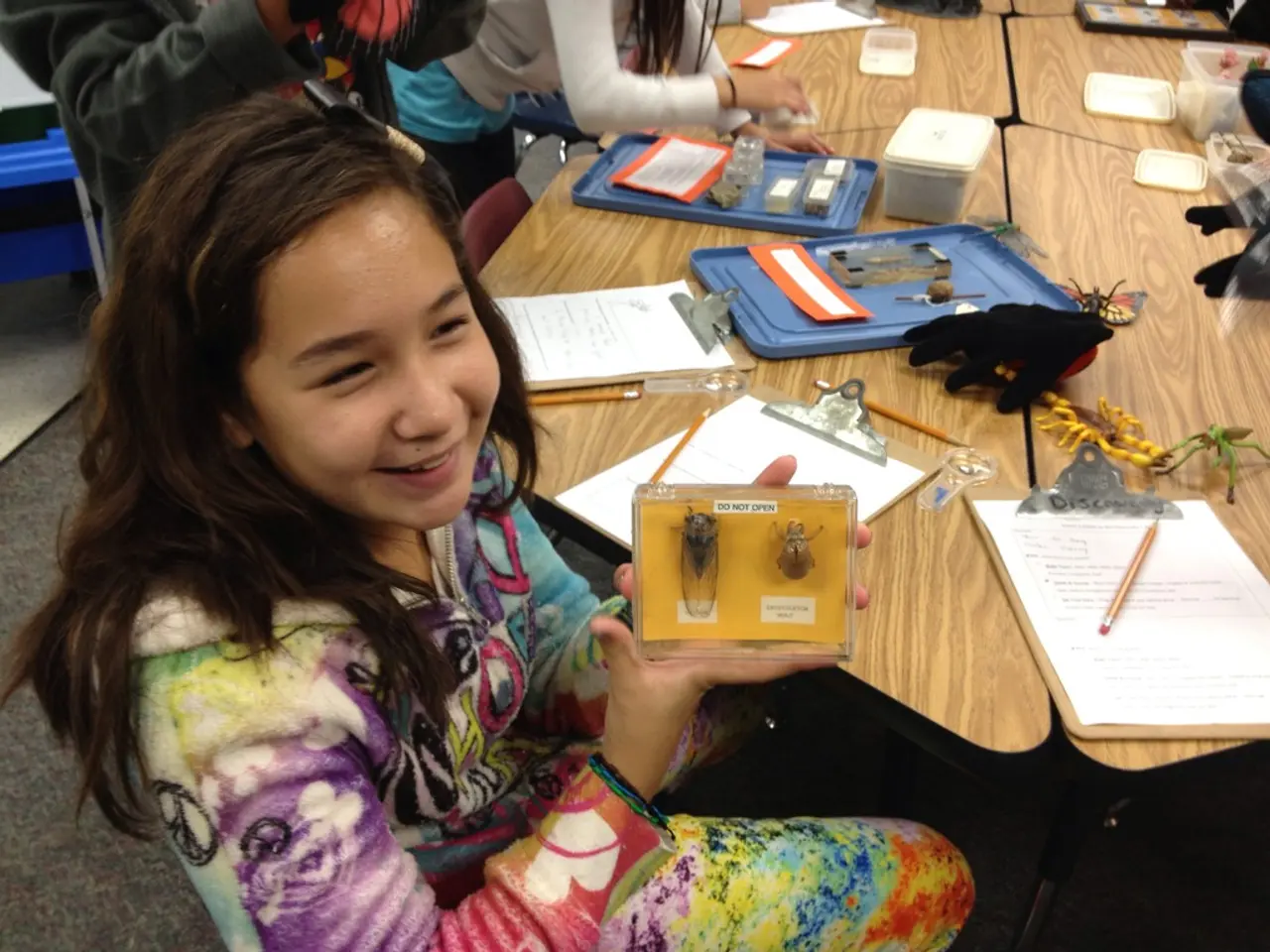Identifying a Prevalence of Pessimistic Individuals: Recognizing and Managing Them Effectively
In the realm of science, problem-solving skills are not just a bonus, they are a necessity. These skills are instrumental in identifying and addressing complex issues, developing effective solutions, and achieving one's career goals.
For students in science education, problem-solving skills are a valuable asset. They help students approach problems and assignments systematically and analytically, fostering a deeper understanding of the subject matter.
In the workforce, problem-solving skills enable individuals to identify and resolve issues that may arise, develop innovative solutions to problems businesses and organizations face, and adapt to changes in their work environment.
Overcoming challenges in problem-solving requires strategies such as conducting thorough research, breaking down complex problems, brainstorming with colleagues or experts, using critical thinking, utilizing available resources, effective communication, managing emotions, and persistence.
Common challenges in problem-solving in science include lack of information, complexity of problems, limited resources, unforeseen obstacles, and emotional factors. However, cultivating these skills can be achieved through practices such as critical thinking, taking on challenging problems, learning from mistakes, collaborating with others, using the scientific method, seeking out training and education, and breaking down complex problems.
The scientific method itself is a systematic problem-solving process that includes identifying a problem or question, gathering data, formulating hypotheses, conducting experiments, analyzing results, and drawing conclusions based on evidence. This structured, logical approach is essential in science as it helps scientists make sense of complex information, identify patterns in data, develop innovative solutions, and communicate effectively.
Problem-solving is not only central to the scientific method but also to scientific progress. It provides a structured, logical approach to investigating questions, testing ideas, and building reliable knowledge. Key points illustrating this role include:
- Structured Investigation: The scientific method uses problem-solving steps such as observation, question formulation, hypothesis creation, experimentation, and conclusion drawing to tackle unknowns systematically rather than relying on guesswork or assumptions.
- Promoting Critical Thinking: Problem-solving within the scientific method encourages critical analysis of data, objectivity, and logical reasoning, which reduces bias and enhances the reliability and reproducibility of findings.
- Iterative Process: Scientific problem-solving is often cyclical, where hypotheses and conclusions are revised through repeated testing and refinement, driving ongoing improvements and deeper understanding.
- Driving Innovation and Progress: By solving specific problems through the scientific method, new technologies, theories, and knowledge are developed, which advance multiple disciplines such as biology, physics, medicine, and environmental science.
- Active Engagement: Applying problem-solving techniques (e.g., defining problems clearly, testing hypotheses via experiments) enables scientists—and learners—to engage actively in inquiry, fostering exploration and discovery rather than passive reception of facts.
Moreover, problem-solving skills extend beyond the realm of science. They enhance critical thinking and analytical abilities, which are important not only in science but in many other fields as well. For instance, problem-solving skills are crucial for entrepreneurs, as they help identify and resolve issues that may arise in a business, develop innovative solutions to problems, and adapt to changes in the market.
Effective problem-solving is also a key component of leadership and can enhance an individual's professional reputation. Scientific progress is dependent on problem-solving skills, as they are necessary for scientific research to be improved and for progress in various fields of science to be expanded.
In conclusion, problem-solving is embedded in the scientific method as its fundamental framework, guiding scientists through evidence-based inquiry, enabling validation or refutation of ideas, and ultimately driving scientific progress and innovation.
[1] The Scientific Method. (n.d.). Retrieved from https://www.britannica.com/science/scientific-method [2] Scientific Progress. (n.d.). Retrieved from https://www.britannica.com/science/scientific-progress [3] Critical Thinking. (n.d.). Retrieved from https://www.britannica.com/topic/critical-thinking [4] Active Learning. (n.d.). Retrieved from https://www.britannica.com/topic/active-learning [5] The Cyclical Nature of Scientific Inquiry. (n.d.). Retrieved from https://www.britannica.com/topic/scientific-inquiry/The-cyclical-nature-of-scientific-inquiry
- Developing effective problem-solving skills in a health-and-wellness context could lead to the identification of innovative solutions for chronic illnesses, improving overall patient care and contributing to professional growth in the field.
- Cultivating strong communication skills, in addition to problem-solving, can play a pivotal role in disseminating scientific findings clearly and effectively to relevant stakeholders, ensuring that research has both immediate and long-term impacts on Society.
- A science education that emphasizes the enhancement of problem-solving skills, alongside mental-health awareness, can create well-rounded graduates who are not just technically proficient but also sensitive to their own emotional responses, enabling them to thrive in a diverse and rapidly evolving career landscape.




